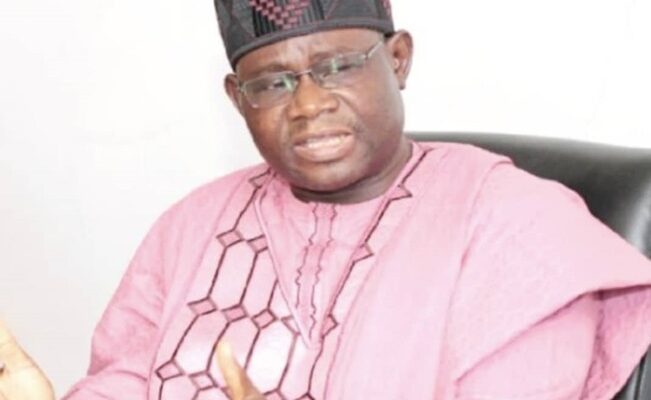It has been nearly a decade since I published “Journalism and Business: My Newspaper Odyssey”, a modest attempt to document the birth and growth of Media Trust Ltd, publishers of Daily Trust. I had hoped the book would serve as both a record of events and a guidepost for anyone attempting to walk the tightrope between editorial integrity and business sustainability in the Nigerian media space.
What I didn’t fully anticipate was the level of resonance the book would find with journalists, entrepreneurs, media scholars, and policymakers. Since its publication in 2016, the response has been deeply encouraging. It has sparked conversations, corrected misconceptions, and, most importantly, inspired new reflections about how media institutions can be built —systematically, ethically, and sustainably.
The Meeting Of Minds
The book grew out of my personal experience – starting from the day, in March 1996, when Mallam Kabiru Yusuf and I met again at the Citizen magazine premises in Kaduna. We had worked together at the Lagos office of Citizen between 1990 and 1993. That day, we discussed the idea of building a media outfit that would reflect Northern perspectives, operate professionally, and survive on its own merit.
With just N20,000, two chairs, and a borrowed space behind a friend’s printing press, we began to build what would later become Daily Trust. The book recounts those early years—writing proposals, seeking clients, sourcing stories, and holding onto the belief that we could build a different kind of media house in Nigeria.
Responses That Humbled Me
What has stood out most to me since the book’s release is how senior professionals and colleagues interpreted and responded to it.
Uncle Sam Amuka, the legendary publisher of Vanguard, graciously wrote the preface. He called the book “a masterclass manual,” praising the structure and systems that helped us grow. He captured what many in the media often overlook: that journalism is an art, but publishing is a business.
Mallam Adamu Adamu, former minister of education and prolific writer wrote the foreword. He reminded readers that good prose does not automatically make a paper profitable. He highlighted how my background as an economist helped Citizen and Media Trust achieve commercial success in environments where others had faltered.
Azubuike Ishiekwene, Editor-in-Chief of LEADERSHIP, noted that the book was not just a memoir but also a how-to manual for media start-ups. His detailed review reflected a genuine understanding of what it takes to build systems, recruit talent, and keep a newsroom running.
Then came Prof. Farooq Kperogi’s piece. He admitted the book corrected his earlier view of Daily Trust’s ownership structure. Until he read the book, he had described my co-founder Kabiru Yusuf as the “majority shareholder.” The book clarified that while Kabiru holds the highest individual stake, the company was never a one-man show—it was a collective project, shaped by ideas of a few other professionals and businessmen who believed in the project and invested their ideas and time.
Zainab Suleiman Okino, Editor-in-Chief of Blueprint newspaper, writing in Premium Times, highlighted the core tension between editorial and business—arguing that the wall separating them must sometimes have “punctured holes” to allow meaningful collaboration without compromising integrity.
More Than Just A Personal Story
While the book is deeply personal, it is not just about me. It is about the many people who gave their energy, expertise, and belief to the Media Trust vision. From the board, management to early columnists like Sanusi Lamido Sanusi, Dr Aliyu Tilde, Adamu Adamu, Sam Nda-Isaiah, Ishaku Dikko, Mohammed Haruna, Aisha Umar Yusuf, Olu Obafemi, Tunde Asaju, Modibbo Kawu and Dr. Usman Bugaje, Mahmud Jega, Aliyu Akoshile, Issa Aremu, Mohamed Algazali, Ndang Alibi, the book pays tribute to teamwork and shared responsibility.
It is also about the systems that allowed us to grow: transparent governance, editorial independence, technological innovation, and—above all—credible journalism. I took care to document how we started with weekly publications, outsourced our printing, and invested in performance management long before such ideas became popular.
Lessons For the Industry
Looking back, one of the major motivations for writing the book was to challenge assumptions that newspapers can only succeed with massive capital, that the Northern market is too small, or that editorial policy must align with political interests. We proved otherwise.
The book also tried to offer insights into the future. I warned then, and I still believe, that online platforms. Google, Facebook, blogs, aggregators, have created a fierce and often unfair competition for newspapers. But rather than fear the change, I believe we must adapt to it.
A Lasting Purpose
Ultimately, “Journalism and Business: My Newspaper Odyssey” was never meant to be a vanity project. It was written to preserve a legacy, yes—but more importantly, to inspire. If it has encouraged just one young journalist to think differently about sustainability, or one entrepreneur to see value in building ethically, then it has served its purpose.
As I look back on the journey, I remain grateful for the colleagues who believed, the readers who supported us, and the professionals who took time to reflect on the book.
History is often written by those who show up, but it is preserved by those who care enough to document it. That was my mission. And I’m glad I did.
–Ajibola (Akogun of Ife-Olukotun) is co-founder and former managing director/COO of Daily Trust.





